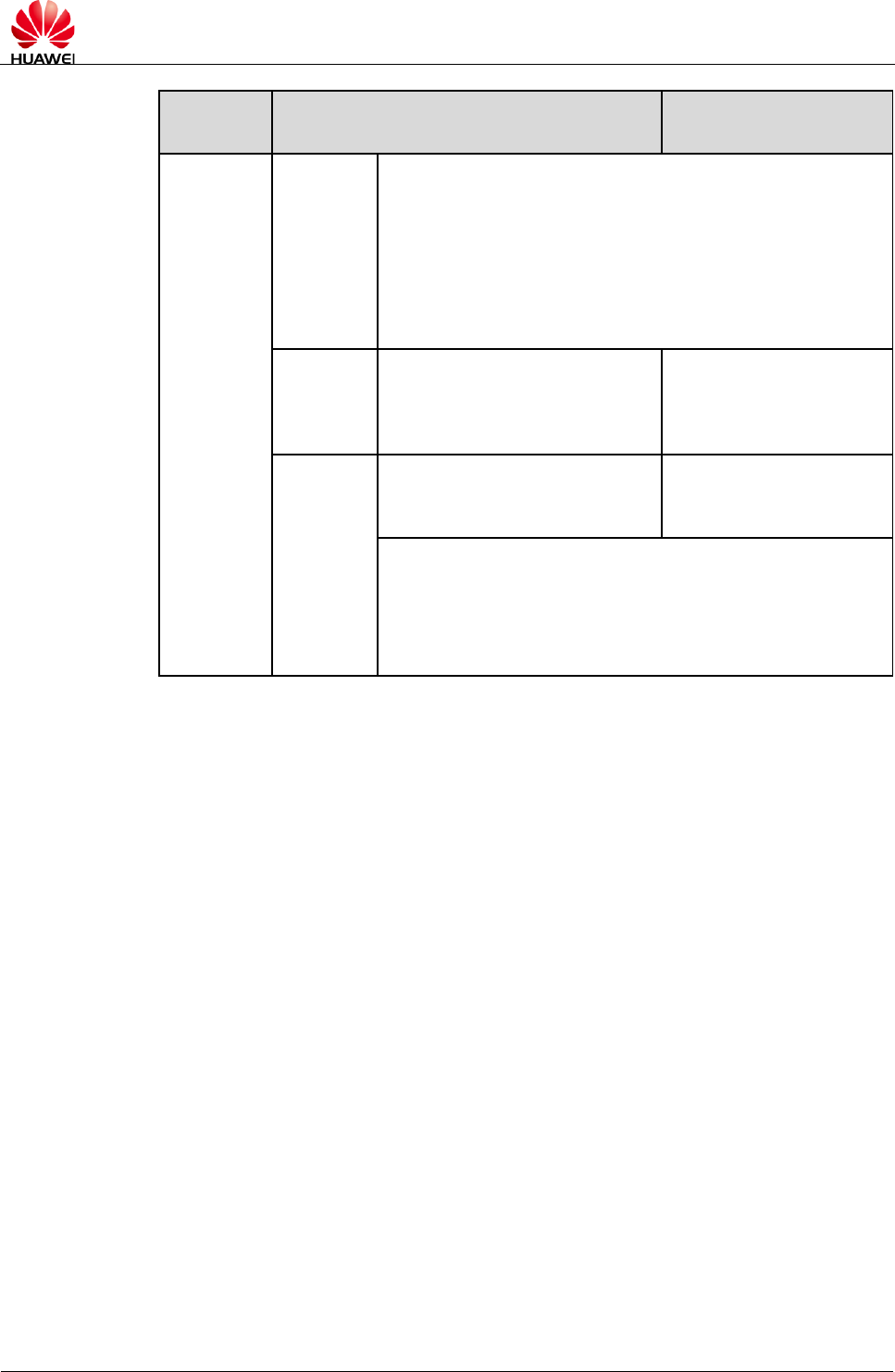
HUAWEI MC509 CDMA LGA Module
AT Command Interface Specification
Overall Description
Issue 01 (2011-08-26)
Huawei Proprietary and Confidential
Copyright © Huawei Technologies Co., Ltd.
22
Command
Type
Command Format
Description
Note:
If all parameters are omitted, the = symbol following <name>
should be omitted. If <name> is not identified, this command
does not exist. In this case, ERROR is returned. When <name>
is identified, if a command that is not allowed to contain
parameters contains parameters or a command that is allowed to
contain parameters contains more parameters than the defined
ones, "ERROR" or “+CME ERROR : operation not allowed” is
returned.
Read
command
<name>?
A read command is
executed to read the
current value of a
parameter.
test
command
<name>=?
A test command is
executed to check the
parameter range.
Note:
If the MS fails to identify <name>, the MT returns ERROR. If the
MT can identify <name> and the contents returned by the
command do not contain parameters, the MS returns OK. If the
contents returned by the command contain parameters, the MS
returns the value range of each parameter, and then returns OK.
1.4.3 Abort Attributes of AT Commands
Abort means that the TE sends an instruction to abort a command when the
command is being executed. An abort instruction must be sent before a command is
completely executed. Therefore, the abort instruction is valid for a command whose
execution consumes certain time; however, not all commands of this kind can be
aborted. Whether a command can be aborted depends on the abort attribute of the
command. Each AT command has its abort attribute, which is alternative. That is, the
command is either abortive or not abortive. Abortive commands include certain basic
commands and execution commands of action commands. Within 125 ms after the
abortive commands are sent, no abort request is accepted. After 125 ms and before
the commands are completely executed, if the module receives any character sent
by the TE, the commands are aborted immediately.
1.4.4 Rules for Running AT Commands
1. Each command line contains only one AT command and ends with a carriage
return character, in addition to the basic standard commands such as 1, V, S3
etc. In principle, users are not allowed to run S3/S4 format modification
commands. This rule is applicable to the communication between the MT and
TE programs.
2. To increase the readability and regularity of command and response formats, in
addition to the original interfaces specified in standards and protocols, all new
interfaces must observe the following rule: No space is added to the end of
commands such as the AT^XXX=<arg0>,<arg1> commands, or added to the
end of the ^ symbol, colon, and comma. No redundant space is added ahead of


















